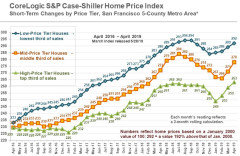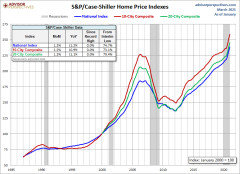No showings or interest in red hot market
Aubrey Brennan
2 years ago
Featured Answer
Sort by:Oldest
Comments (105)
westes Zone 9b California SF Bay
last yearwestes Zone 9b California SF Bay
last yearRelated Discussions
I want a more impressive Red Hot Poker
Comments (14)Think there are still a couple plants in my garden. They haven't been as impressive as they were the first year or two after planting, so I haven't paid much attention. One might have died out, not sure. Looking back on my notes my plants are K. uvaria 'Flamenco', which I believe is seed mixture that comes in all colors (yellows, oranges, reds bicolors). Here is a pic of mine with Maltese Cross from a few years ago: While I do like the general look and interesting flower of Hot Pokers, I DON'T care for the fact that they have such a limited bloom time and can be a bit temperamental. So no, I wouldn't say this isn't a favorite plant of mine. I saw something interesting in a magazine awhile back about bundling up Kniphofia foliage (i.e. gathering it all together and tying) for winter. Don't think they gave much more info or explanation, but it made me wonder if perhaps this plant benefits from a well protected crown? Perhaps bundling the foliage either keeps the crown insulated or keeps the water from developing on it too much during winter? I dunno, just a thought. Might be worth a try for those who haven't had much luck over wintering them... CMK...See MoreStrong Red or Hot Pink Blooming Clematis??
Comments (20)Brandy, here is a closer up view of Avant Garde. The color changes as the flower ages and then the sepals fall off leaving the pink frillies in the center. Others to consider would be C. texensis. The color of the flower will vary depending on whom you purchase it from but it is a beauty nonetheless. Another one that is more burgundy red is Gravetye Beauty. I almost hesistate to recommend her because she and her relatives, Etoile Rose and Princess Dianna are mildew magnets in my garden, but nonetheless will throw her in here. Another new one for me is Peveril Peach. Definitely not peachy in my eyes but perhaps the flowers will change as the plant matures. To me it looks a little like Duchess of Albany but the flower is much smaller. Here is a comparison shot of D of A and Peveril Peach....See MoreRed Hot Suggestions please.
Comments (12)i grew Roses in Snow for the first time this year. it went from one fan to two, so that was good. the flowers were not pictur perfect, but they did have a lot of "snow" on the edges. maybe it is right that you need more heat, we defineately have that in spades! lol i am not a big red person, but i was impressed with Superlative, it did very well for me. tracie...See MoreThe market is crazy hot where we live
Comments (17)We are in DFW TX area--midway between two metro areas... have older home almost 30 yrs old listed for sale under 30 days and is under contract in the 10 day option period for inspections... should close before Nov 30 if those go well it is in older neighborhood where there are mature trees/landscaping, owners have maintained their property and when it was new it was one of two "best" neighborhoods in the suburban town...it still has high % of original owners and most residents are older--few elementary school kids in this neighborhood...so guess target buyers are not first time or young familiy when we listed there were 5 other homes on market--now there are 3, a 50% decrease. One home under contract is large 2 story listed around 330K--owner has moved to another area and house was up for sale for about 6 months... don't know if he took low offer since pending prices aren't disclosed on MLS info... We had done a major remodel on our house 4 yrs ago--so there are upgrades in kitchen and the 2.5 bathrooms--new paint, hardware, ceiling fans, carpet and tile flooring...not the normal case with most listings I have seen... we could not price to include all our costs so on paper we are losing money but since house was rental for past 4 yrs some of that loss might help us on taxes...but our contract price is higher than what one agent we interviewed before signing MLS contract suggested was good list price...so that is positive... We had probably 7 or 8 showings and well-attended open house before the offer...and have had a showing since...but now under contract house is not listed on MLS so won't be as easy to find online....I was surprised actually that an offer came so soon because our house does not have an open kitchen arrangement and there is step-down to the main living area...both of which are "dated" design elements... but the buyer is middle aged woman so maybe she is comfortable with those features... We are not in the "top" school districts in the area for $ for $ our district offers a great education for people who can't afford a 400K home... DFW in general did not see the type of housing collapse that places like Las Vegas or Phoenix or some parts of the east/west did...but our prices also did not over-appreciate in most areas either... we are helped by the strong job market and the fact that people are moving into this area from out of state so our buyer pool is replenished......See Moremxk3 z5b_MI
last yearbry911
last yearwestes Zone 9b California SF Bay
last yearElmer J Fudd
last yearlast modified: last yearmxk3 z5b_MI
last yearbry911
last yearlast modified: last yearwestes Zone 9b California SF Bay
last yearwestes Zone 9b California SF Bay
last yearJennifer Hogan
last yearJennifer Hogan
last yearworthy
last yearlast modified: last yearbry911
last yearElmer J Fudd
last yearlast modified: last yearbry911
last yearlast modified: last yearElmer J Fudd
last yearlast modified: last yearbry911
last yearlast modified: last yearwestes Zone 9b California SF Bay
last yearlast modified: last yearJennifer Hogan
last yearworthy
last yearlast modified: last yearShadyWillowFarm
last yearbry911
last yearlast modified: last yearbry911
last yearlast modified: last yearbry911
last yearlast modified: last yearShadyWillowFarm
last yearbry911
last yearlast modified: last yearbry911
last yearlast modified: last yearJennifer Hogan
last yearpalimpsest
last yearlast modified: last yearJennifer Hogan
last yearShadyWillowFarm
last yearbry911
last yearlast modified: last yearpalimpsest
last yearJennifer Hogan
last yearpalimpsest
last yearbry911
last yearpalimpsest
last yearbry911
last yearnickel_kg
last yearlast modified: last yearwestes Zone 9b California SF Bay
last yearJennifer Hogan
last yearwestes Zone 9b California SF Bay
last yearJennifer Hogan
last yearwestes Zone 9b California SF Bay
last yearJennifer Hogan
last yearwestes Zone 9b California SF Bay
last yearJennifer Hogan
last yearmxk3 z5b_MI
last yearwestes Zone 9b California SF Bay
last yearlast modified: last year
Related Stories

DECORATING GUIDESHot Looks From the Spring 2013 High Point Market
Get an eyeful of some of the colors, textures, materials and more taking a big stand at North Carolina's huge furnishings trade show
Full Story
ORANGEOrange: Still Hot, Hot, Hot
Get fired up to bring in more orange with energizing paint, furnishings, rugs and accessories
Full Story
MOVINGTips for Winning a Bidding War in a Hot Home Market
Cash isn’t always king in a bidding war. Get the home you want without blowing your budget, using these Realtor-tested strategies
Full Story
EVENTS6 Hot Decor Trends at Las Vegas Winter Market 2018
Designers see curvy sofas, pastels, polished woods and more black and gold coming our way
Full Story
EVENTS5 Hot Trends From Toronto’s 2020 Interior Design Show
Textured faucets, biophilic wallpaper and sculptural LED lights were among the trends spotted at this year’s IDS
Full Story
COLORHot Uses for Red Around the House
Spark some excitement from the front door to the back bedroom by bringing in this sultry, sexy color
Full Story
HOUZZ PRODUCT NEWS15 Design Trends Spotted at the Spring 2022 High Point Market
Warm palettes, curves and organic influences reigned at the influential trade show, but the trends didn’t stop there
Full Story
EVENTS15 Design Trends Spotted at the Spring 2022 High Point Market
Warm palettes, curves and organic influences reigned at the influential trade show, but the trends didn’t stop there
Full Story
DECORATING GUIDESTop Design Trends From the Winter 2015 Las Vegas Market
Interior designer Shannon Ggem is tracking finishes, motifs and design combinations at the 2015 show
Full Story
KITCHEN DESIGNNew This Week: The Stylish Kitchen Trend Showing Up Everywhere
Brass hardware paired with dark cabinets and a neutral backdrop is hot in kitchens. Here’s how designers make it work
Full Story









palimpsest